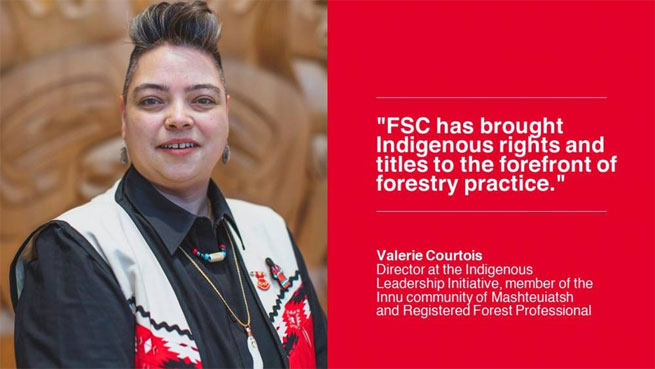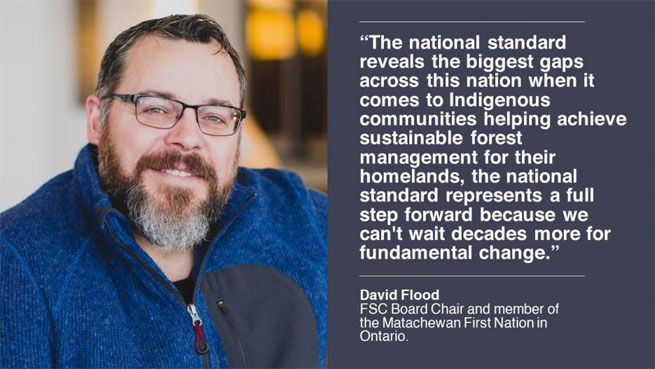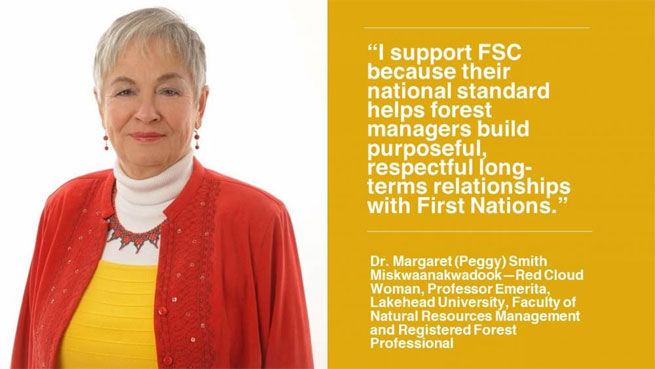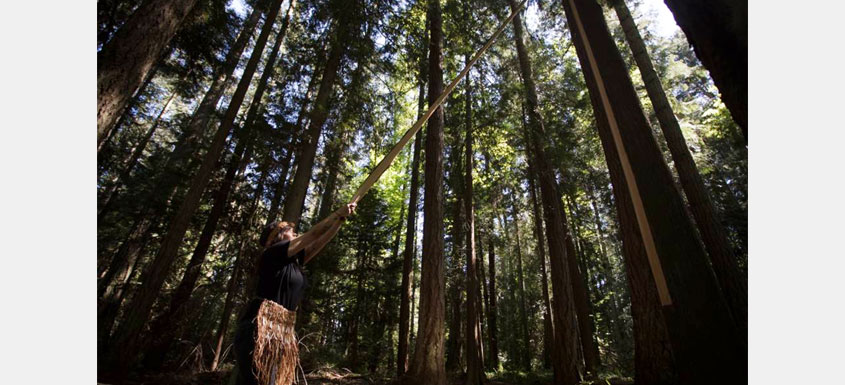“FSC has brought Indigenous rights and titles to the forefront of forestry practice.” Valérie Courtois, Director at the Indigenous Leadership Initiative, member of the Innu community of Mashteuiatsh and Registered Forest Professional (RFP).
FSC Canada is committed to ensuring that our forests meet the social, ecological and economic needs of present and future generations. Paramount are the needs of Indigenous Peoples, who continue to fight for inclusion in decisions around the use of their traditional territories – often held back by the legacy of colonialism that dispossessed them of their lands and the systemic racism that persists to this day.

Forests are interwoven into the fabric of Indigenous communities, who have relied upon them for food, medicine, homes and spiritual and cultural values well before the word “Canada” emerged. Later, forests were exploited to develop the Canadian economy, yet Indigenous communities have remained on the margins of progress and profit, long excluded from a share in the economic benefits.
FSC Canada’s national forest management standard enhances and clarifies the deep-rooted need for Free, Prior and Informed Consent (a key requirement of international human rights laws), and compels all stakeholders, including forest management companies, to uphold these rights.

“The national standard reveals the biggest gaps across this nation when it comes to Indigenous communities helping achieve sustainable forest management for their homelands,” says David Flood, FSC Board Chair and member of the Matachewan First Nation in Ontario. “The national standard represents a full step forward because we can't wait decades more for fundamental change.”
Since its inception, FSC has been committed to the goal of creating forest certification requirements that yield tangible benefits to Indigenous Peoples. In addition to “Principle 3, Indigenous Peoples’ Rights” - which identifies and upholds Indigenous Peoples’ legal and customary rights to own, use, and manage land, territories and resources affected by forestry activities across the globe - FSC Canada responded to the leadership provided by Indigenous members and established a unique fourth “chamber” for Indigenous Peoples in 1993, adding to its existing social, environmental and economic chambers.

From there, FSC worked to bring its new 2019 national forest management standard to fruition, leveraging six years of consultation with stakeholders to achieve unified Canada-wide expectations on forest management. Along with clear guidance around Free, Prior and Informed Consent, the standard features indicators that are building blocks to show how industry can specifically uphold Indigenous rights, treating nations with respect through the negotiation of mutually beneficial agreements.
“I support FSC because their national standard helps forest managers build purposeful, respectful long-terms relationships with First Nations,” Dr M.A. (Peggy) Smith RFP, Miskwaanakwadook—Red Cloud Woman, Professor Emerita, Lakehead University, Faculty of Natural Resources Management.
To learn more about FSC Canada’s commitment to Free Prior and Informed Consent, click here.
Source: FSC













